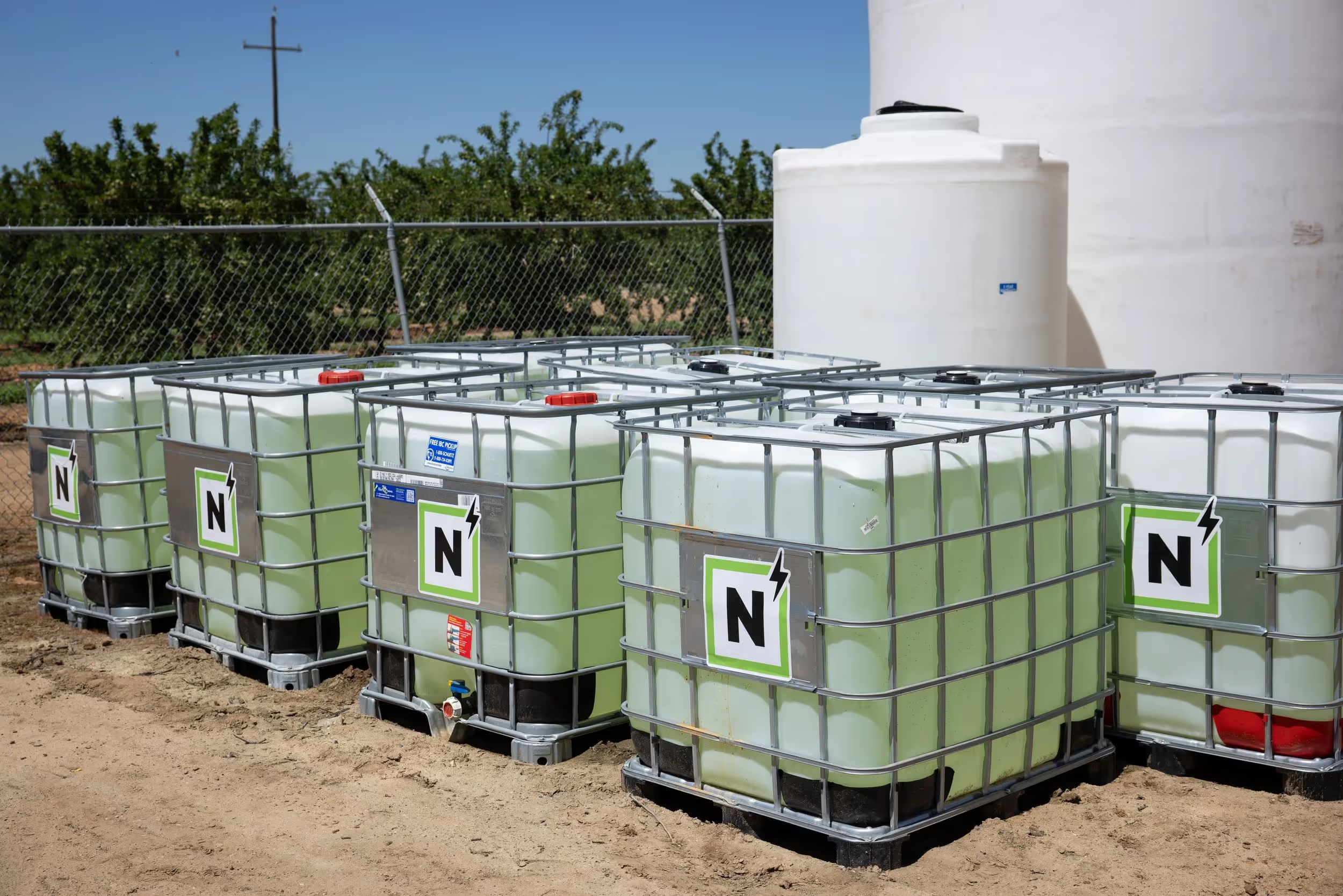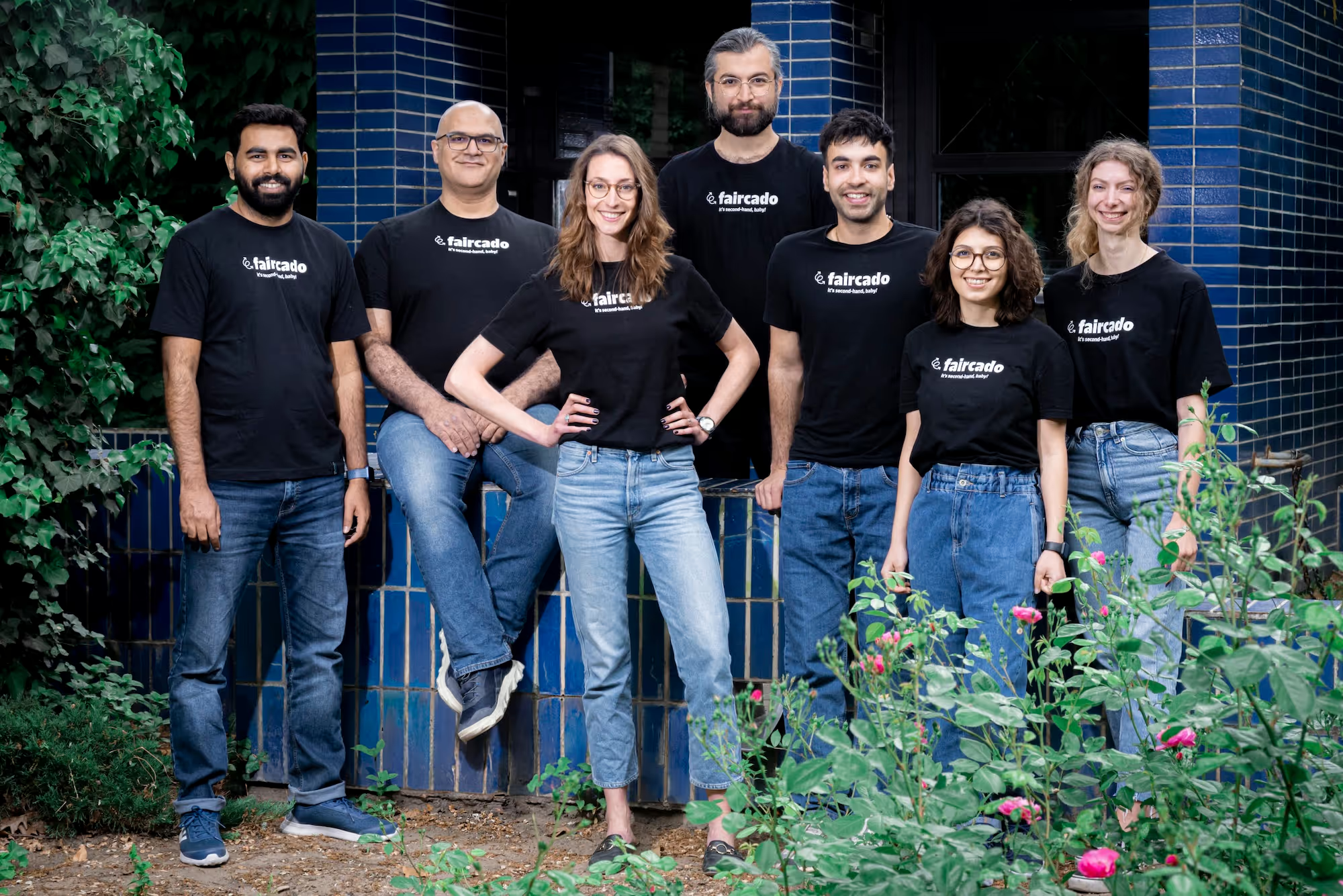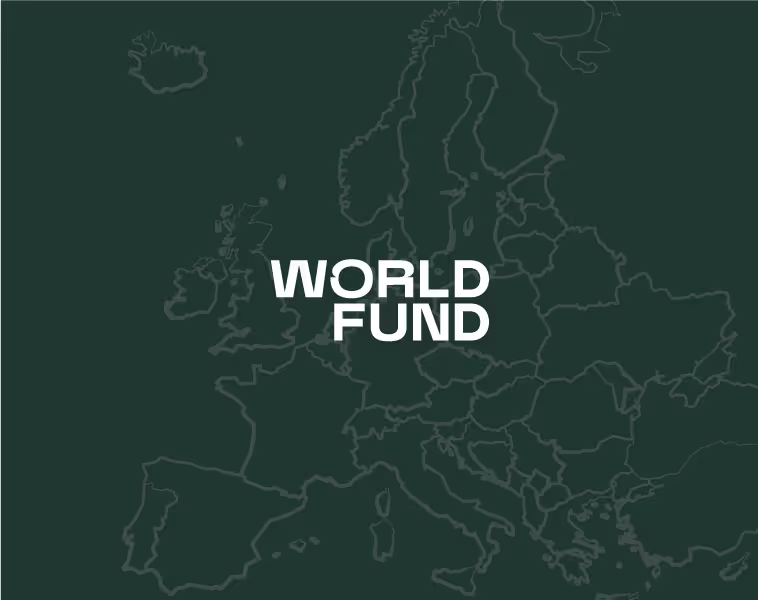Why we invested in Nitricity

The problem Nitricity addresses – and why this scaleup stands out from the crowd
Conventional nitrogen-based synthetic fertilisers account for around 5% of global greenhouse gas emissions (GHG) worldwide. These fertilisers are primarily produced through the century-old Haber-Bosch process, which revolutionised food production, but consumes enormous amounts of energy and remains largely dependent on fossil feedstocks.
This San Francisco-based scaleup, founded in 2018 by a talented, scientific team of Stanford University graduates, Nicolas Pinkowski (CEO), Dr Joshua McEnaney (President and CTO), and Dr Jay Schwalbe (CSO), has the potential to electrify the production of nitrogen fertiliser worldwide.
Nitricity produces sustainable, organic nitrogen fertilisers by harnessing air, water, renewable energy, and local plant-based materials such as almond shells or wood. Its flagship nitrogen fertiliser liquid - Ash Tea - is cost-competitive with rival organic fertilisers while being pathogen-free and free from (often unpleasant-scented and offputting) animal byproducts while providing superior performance. Crucially, farmers don’t pay a green premium for this clean technology: they pay the same but get higher yields and better returns.
An LCA conducted by an independent third party shows that Nitricity’s price-competitive organic fertiliser can provide a 92% reduction in emissions on average. It also delivers yield increases of up to 30%, and has proven a hit with organic farmers in the US. Now, World Fund is proud to have joined with Khosla Ventures to co-lead a $50 million Series B round into Nitricity to help the company invest in further R&D, make key hires, and take its next step: expanding into Europe.
Why Europe represents a huge opportunity for Nitricity
As the EU looks to meet sustainability and organic requirements, demand for Nitricity’s solution is only rising. Furthermore, deploying Nitricity’s fertilisers at scale will also help bolster European resilience – a key investment priority for us at World Fund.
Europe is currently in a trade deficit when it comes to nitrogen-based fertilisers, where current domestic fertiliser production is largely reliant on imported natural gas to produce ammonia (~80% of which is used as nitrogen fertiliser). This fragility was highlighted during the 2022 EU energy crisis (due to the Russian invasion of Ukraine) when 70% of ammonia fertiliser production had to shut down due to soaring gas prices. Just this January, SKW Piesteritz, Germany’s largest ammonia producer, had to shut down for over a month for the same reason.
Europe needs fertiliser production that is not exposed to geopolitical tensions and gas price volatility and Nitricity offers the answer.
The right team to reshape a $150 billion+ market
We believe Nitricity is at a growth inflection point, and has the right team to seize on the opportunity ahead.
Fertilisers are a $150 billion market, and McKinsey predicts it will grow around 2.1%pa in the coming decade. Nitricity already has a significant sales pipeline following a period of rapid growth, a pilot factory in Fremont, and a first commercial-scale facility under construction in Delhi, California. The company is also building additional capacity in the Western US to help it expand into local high-value fruit markets.
And this is just the start. Europe represents Nitricity’s biggest opportunity yet because of the widespread use of organic farming, especially for high-value crops. With rising demand, supportive regulations, and governments seeking to reduce nitrogen runoff and encourage organic farming, the timing could not be better.
Crucially, Nitricity also has the team with what it takes to go global. Nico, Josh and Jay wield that rare combination of scientific creativity and commercial discipline, and they consistently execute on their goals. They are transparent, committed and easy to work with – attributes we look for in all the founders we support at World Fund.
Nitricity is showing that fertiliser can be produced locally, sustainability, and competitively – turning waste into resilience and helping build a stronger food future for all. We could not be more proud to be supporting Nico, Josh, Jay and their team as they scale.
If you have any questions or you’re a founder operating in this space, please get in touch with Nadine at nadine@worldfund.vc.
---
About Nadine Geiser, Principal, World Fund
Dr. Nadine Geiser holds a PhD in Biotechnology from ETH Zurich and has led on several food, agriculture and land use investments for World Fund, including fermentation leader, Farmless. She previously closed deals at venture firms including M Ventures, Bank Vontobel, Redalpine, and sits on the advisory board of the Bioinnovation Institute - Novo Nordisk Foundation.


.svg)
.svg)







.svg)



